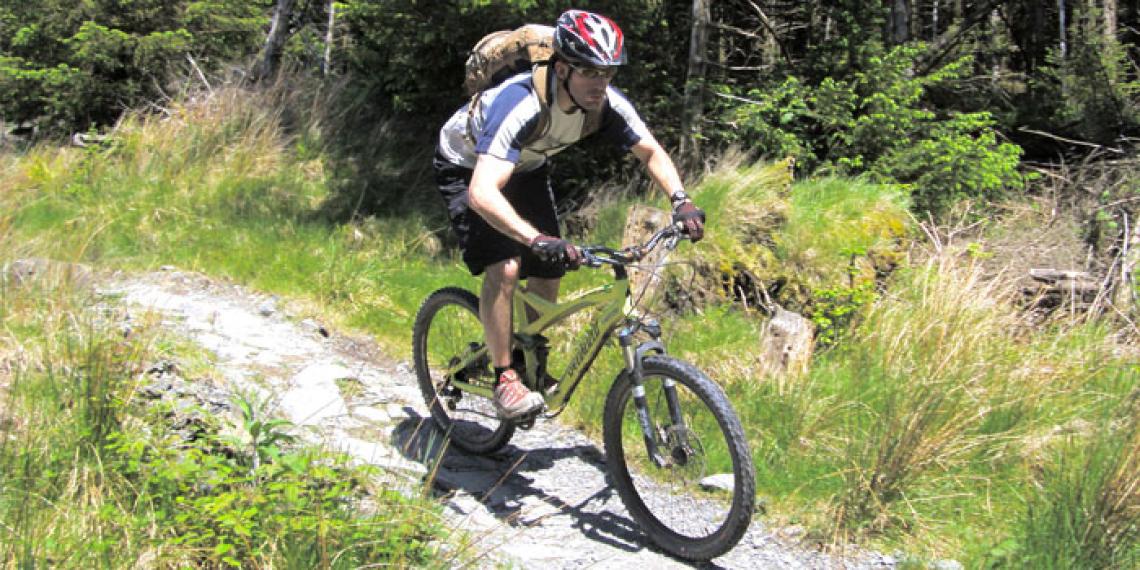You are here
Before you hit the trails

Mud and flooded rivers are part of the fun when it comes to mountain biking in the winter months. But it’s important to be prepared. Here are some essentials for your kit …
Nutrition: Riding is a big calorie burner. Make sure you take enough high-energy nutrition with you such as energy gels or bars, bananas, cereal bars, jelly beans or trail mix.
Hydration pack: This allows you to carry 2–3 litres of water in your backpack and drink from it hands free while biking. Ingenious!
Spare inner tubes: Carrying two spare tubes is a must for riding. Having a puncture out on the trail without a spare inner tube is a nightmare for any rider. But if you carry two, you’re prepared even for the worst luck.
Mini pump: Tubes and patch kits are useless without a pump. Look for a mini pump with a good sized volume and that is lightweight and easy to use.
Multi tool: Crammed with features and equipped with a wide range of Allen keys so you can to repair or adjust components on your bike. Take that, McGyver!
Tyre levers: Essential if you want to fix a puncture quickly.
Shock pump: While modern air shocks are reliable, it’s still a good idea to pack a shock pump in case you develop a slow leak, or (more likely) if you find you need to fine-tune your suspension.
Spare layers: Weather can be unpredictable, particularly in New Zealand. A lightweight, packable rain jacket is vital. If you have space for a windproof layer, chuck it in too.
First aid kit: It’s the element of risk that makes mountain biking such an enjoyable sport. Mountain biking and accidents go together, so carry a lightweight first aid kit with you at all times. Like tools, a first aid kit is only useful if you know how to use it—a basic understanding of first aid and CPR may be a lifesaver.